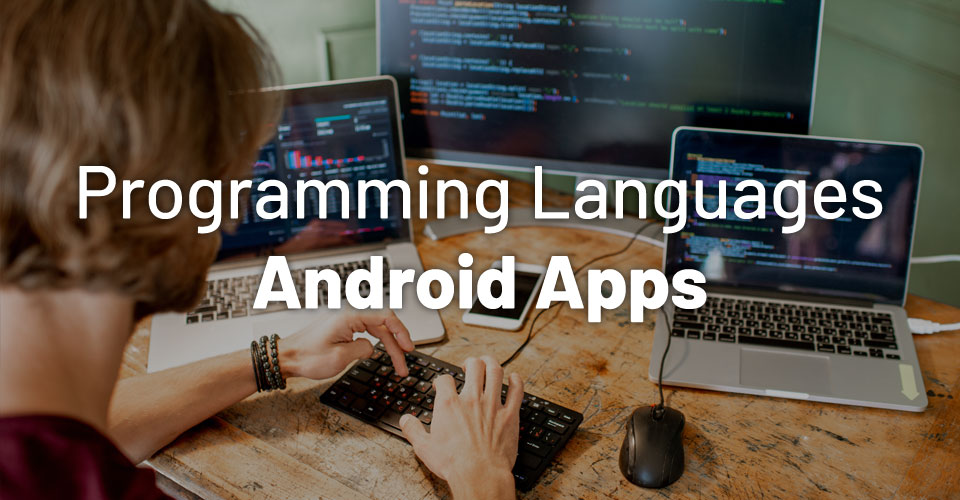Choosing the Right Programming Language for Your Android App Development

When it comes to developing an Android app, choosing the right programming language is crucial. The programming language you select will greatly impact the functionality, performance, and overall success of your app. With so many options available, it's important to understand the strengths and weaknesses of each language before making a decision. In this article, we will explore the various programming languages commonly used for Android app development and provide you with the knowledge you need to make an informed choice.
Before diving into the details, it's worth noting that there is no one-size-fits-all programming language for Android app development. The best language for your project will depend on several factors, including your experience and familiarity with a particular language, the complexity of your app, and the specific features and functionalities you wish to incorporate. Each programming language has its own unique features, syntax, and libraries, making it essential to carefully evaluate your options.
1. Java
Java has long been the primary language for Android app development, and for good reason. It offers excellent performance, a large community of developers, and extensive libraries and frameworks. In this section, we will explore Java's advantages, its suitability for different app types, and some popular apps built with Java.
2. Kotlin
Kotlin, introduced by JetBrains in 2011, has gained immense popularity in recent years. It is a modern, concise, and expressive language that offers seamless interoperability with Java. This section will discuss the advantages of using Kotlin for Android app development, its compatibility with existing Java codebases, and some well-known apps that utilize Kotlin.
3. C++
C++ is a powerful and versatile language that can be utilized for Android app development. It provides direct hardware access, high performance, and is well-suited for graphics-intensive applications. This section will delve into the benefits of using C++, its use cases in Android development, and notable apps built with C++.
4. C#
C# is a popular language developed by Microsoft, primarily used for building Windows applications. With the introduction of Xamarin, C# can now be used for Android app development as well. This section will explore the advantages of using C# for cross-platform app development, its integration with Visual Studio, and notable apps developed with C#.
5. JavaScript
JavaScript, a widely-used language for web development, has also found its way into the Android app development ecosystem. This section will discuss the benefits of using JavaScript for hybrid app development, frameworks like React Native and NativeScript, and examples of successful JavaScript-based Android apps.
6. Python
Python, known for its simplicity and readability, is gaining popularity among developers for Android app development. This section will explore the advantages of using Python, frameworks like Kivy and BeeWare, and examples of Python-based Android apps.
7. Go
Go, a programming language developed by Google, offers simplicity, efficiency, and concurrency. This section will highlight the benefits of using Go for Android app development, its compatibility with existing Java code, and successful apps built with Go.
8. Ruby
Ruby, known for its elegant syntax and developer-friendly features, can also be used for Android app development. This section will discuss the advantages of using Ruby, frameworks like RubyMotion and Shoes, and notable apps developed with Ruby.
9. Swift
Swift, developed by Apple, is primarily used for iOS app development. However, it can also be used for Android app development through frameworks like Kotlin/Native. This section will explore the benefits of using Swift, its integration with Xcode, and examples of successful Swift-based Android apps.
10. Rust
Rust, a relatively new language developed by Mozilla, offers memory safety, concurrency, and performance. This section will delve into the advantages of using Rust for Android app development, its interoperability with Java, and notable apps built with Rust.
In conclusion, selecting the right programming language for Android app development is a crucial decision that can greatly impact the success of your project. It's essential to evaluate the specific requirements of your app, consider your familiarity with different languages, and weigh the advantages and limitations of each option. By carefully considering these factors, you can make an informed choice that sets you on the path to developing a successful Android app.

Post a Comment for "Choosing the Right Programming Language for Your Android App Development"
Terimakasih Telah Berkunjung Di Blog Ini, Jika Merasa Artikel Bermanfaat Jangan Lupa Untuk DiShare.
Atas Kerjasamanya Admin Mengucapkan Terimakasih.
----Katingo Take----